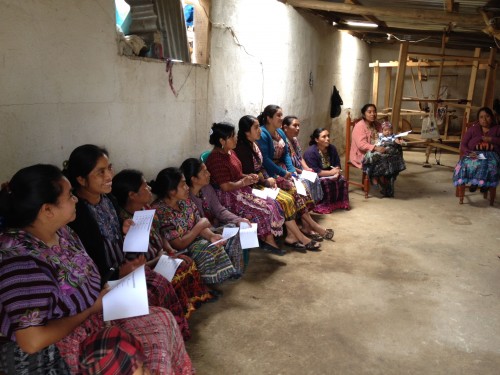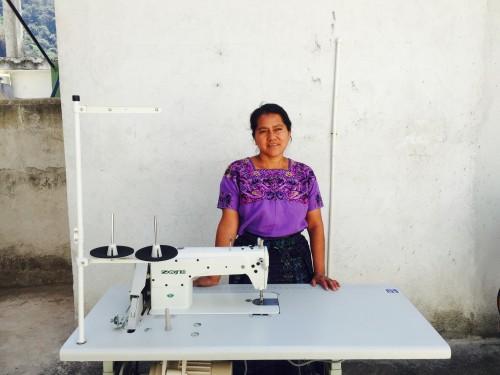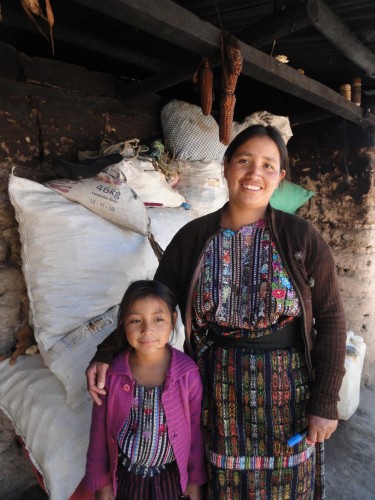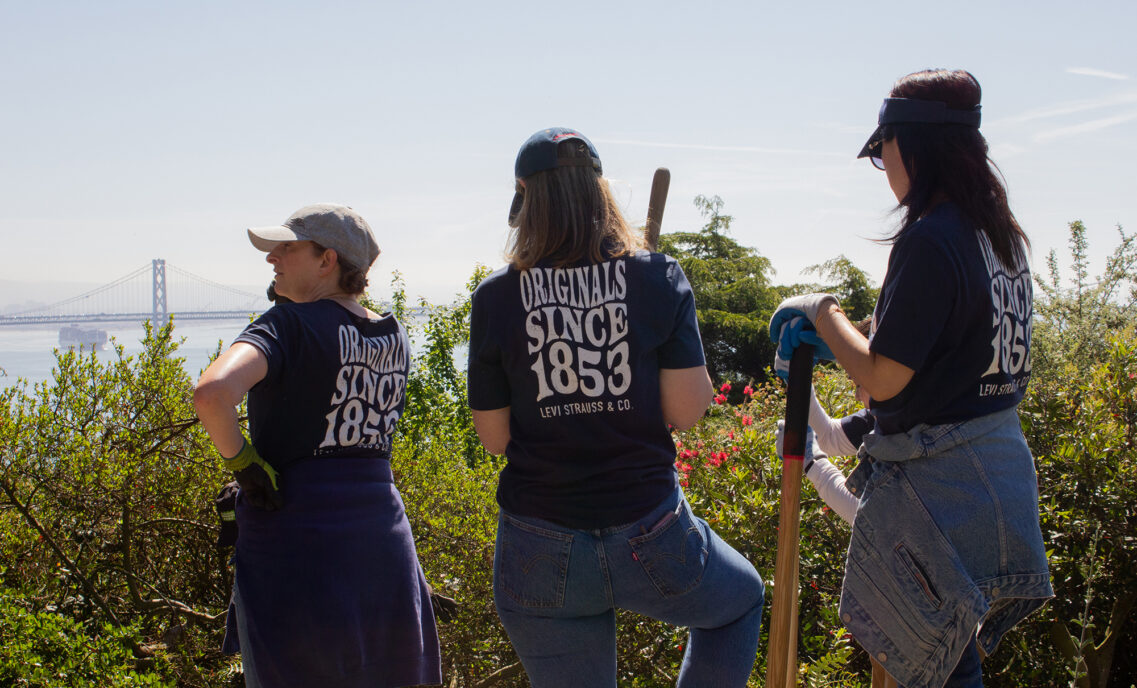Moms are the great equalizer: Everyone has one and everyone knows one. Moms shape who we are, who we want to be and who we will become. As we add another Mother’s Day to our collective memory banks, we wanted to take one more moment to reflect on the critical role mothers play — in raising the next generation, providing for their families and bolstering the broader economy.
The influence of women and mothers is especially prominent for those living in impoverished communities. Consider this: women invest 90 cents of every dollar they make back into the health, nutrition and education of their families. And empowering women “may well be the highest-return investment available in the developing world,” according to leading economists.
The ability – and the opportunity — for women to support overall community economic development is the driving force behind organizations like Mercado Global, a Levi Strauss Foundation grantee and one of the women-centric organizations that LS&Co. supports.
Mercado Global seeks to break the poverty cycle by helping mothers and empowering women around the world. Much of its work happens in Guatemala, where the company has enabled indigenous women artisans to sell their products in the global market.
From a Suitcase to the Retail Shelves
The mission came naturally for Founder and Executive Director Ruth DeGolia, starting with an undergraduate fellowship in Guatemala, six years after the Peace Accords ended the country’s vicious civil war. At the time, funds gifted by international donors were running out, and Ruth, who was studying at Yale University, realized the need for a more sustainable solution to support the country’s impoverished populations.
The solution came to Ruth in the beautiful handcrafted goods made by some of the women she worked with. Ruth noticed that every time she left a community in Guatemala, local women would ask her to go back to the U.S. and sell their goods, hoping that it might provide them with some funds to feed their struggling families.
“I thought ‘These women are my heroes,’” she recalls. “They lived through civil wars and massacres in their communities — but they are fighting.” She went back to Yale, promptly sold $5,000 in product out of her suitcase and sent the money back to the artisans. Motivated by this initial success, she continued her pop-up nonprofit retail operation for the next year-and-a-half.
“I realized that of all the things we were doing to help these communities, this had the biggest impact by far. These women didn’t need to beg for money to send their kids to school. They needed a market,”
LS&Co. + Mercado GlobalMercado Global recently celebrated its 10-year anniversary, and Levi Strauss & Co. has been there since the very early days. In addition to being Mercado Global’s first big wholesale partner, LS&Co. also played another critical role in helping shape the organization’s model.
When the organization was getting off the ground, Ruth quickly realized that Mercado Global had to be about more than just creating a model that would allow these women’s crafts to be sold on an international scale. Community-based education and asset management classes are now pillars of the program, teaching women to set aside savings to decrease their vulnerability to a return to poverty.
“The Levi’s team really helped us build our model,” she said. “They literally sat down and taught us how to work with a design team, and how to CAD — taking into account the products are being made on a loom instead of in a factory. The marketing team helped create our first tags, and Levi’s was the host community for our first big fundraising event.”
Moving the Needle for Indigenous Communities
Aside from the tangible economic benefits for the indigenous communities, it is the women’s evolution and seeing how they hold themselves with pride as they begin to bring home an income that Ruth is most proud of.
Today, in a culture where only one out of 10 indigenous girls complete 6th grade and indigenous children attend school for an average of just 1.9 years, 92% of Mercado Global’s artisan partner’s children of school age are now enrolled in classes. “It’s really cool to change what is possible for the next generation” said Ruth. “And every woman gets how important it is to make sure every girl has the chance to get an education.”
While there is still great work to be done, Ruth thinks the cultural shifts she has witnessed are promising ones. More and more women — and plenty of men, too — are in positions of power and want to help other women get ahead. “You have to refuse to accept that anyone can stop you because you are a woman,” said Ruth. “If you can see it, you can make it possible.”
Ruth’s biggest piece of advice for consumers out there: If you want to support mothers and daughters worldwide, don’t just vote in the ballot box — vote with your dollar by buying goods from organizations (such as Mercado Global) that are helping bring women economic advancement worldwide.



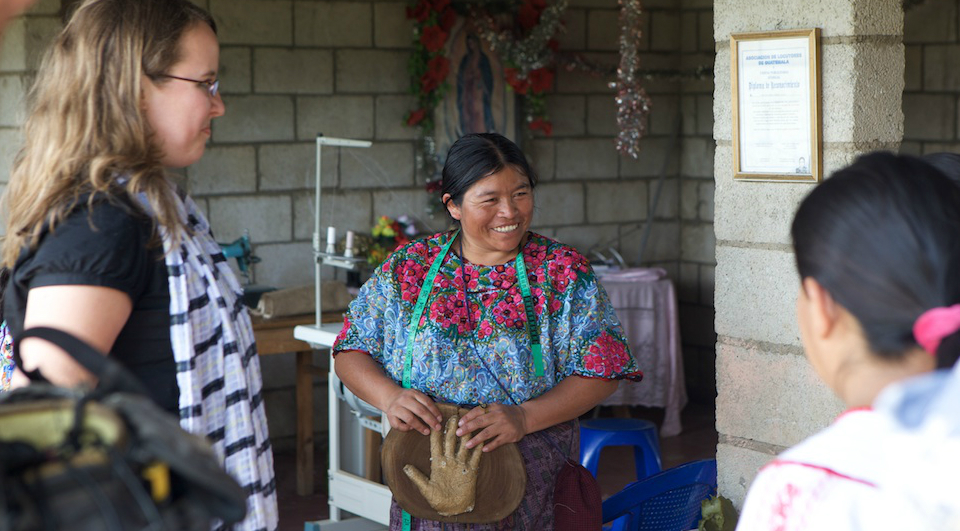
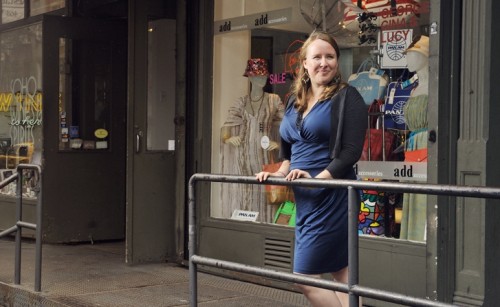
![IMG_1574-1[1]](http://levistrauss.com/wp-content/uploads/2015/05/IMG_1574-11-500x333.jpg)
